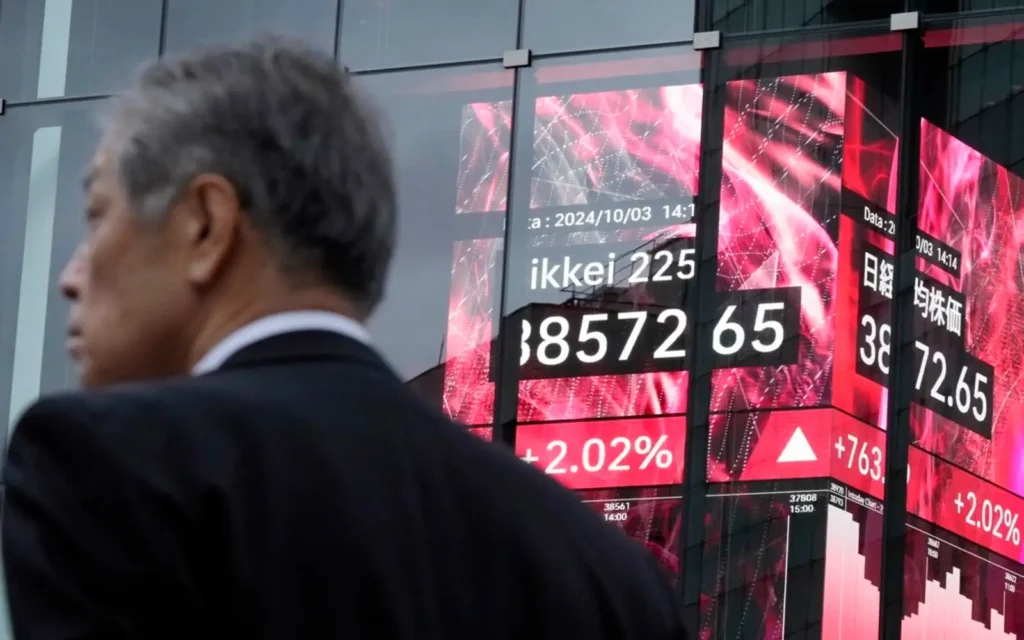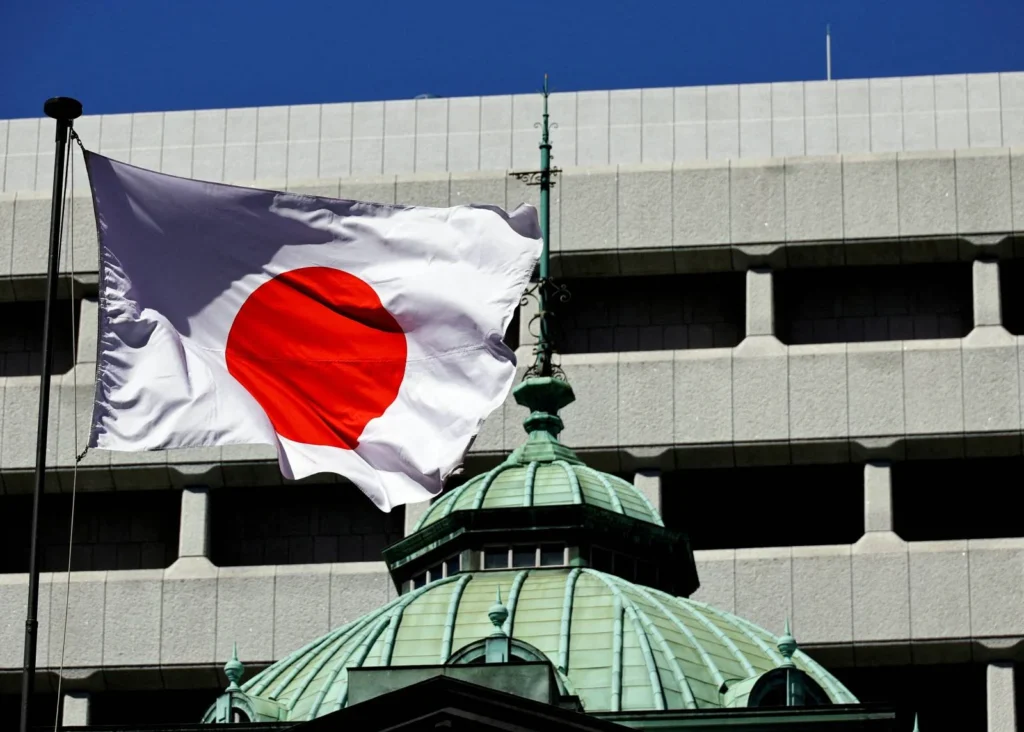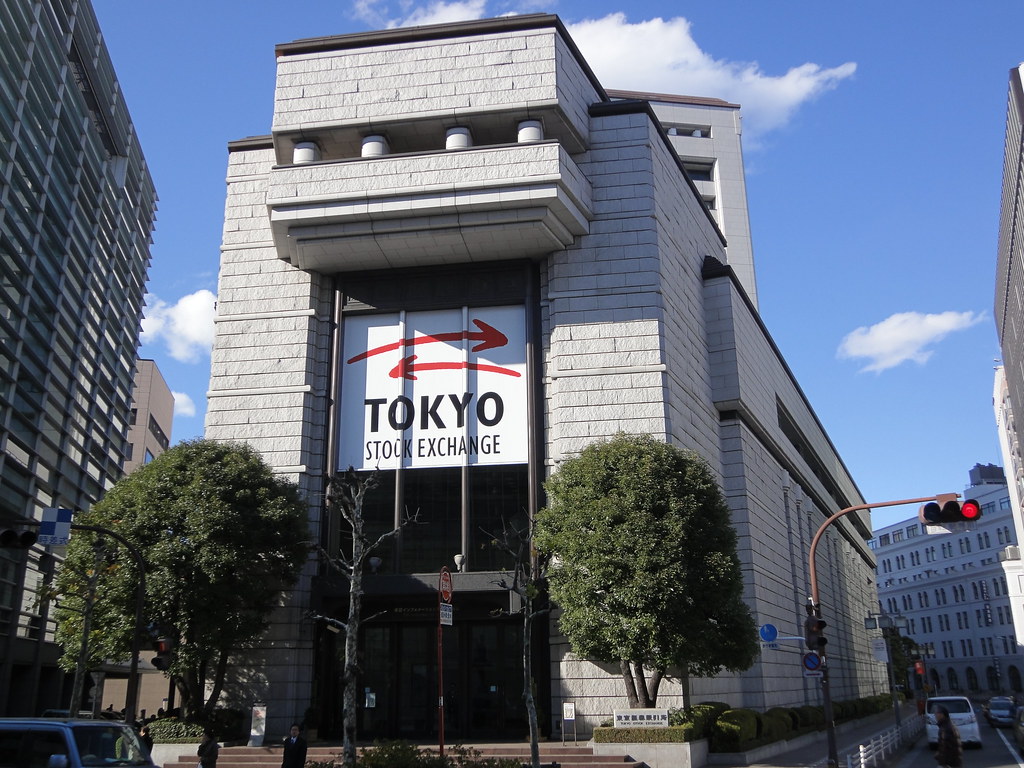Japan’s stock market has experienced a significant downturn, with major indices plunging over 2% as global concerns about the impact of U.S. tariffs under former President Donald Trump continue to weigh heavily on investor sentiment. As one of the largest economies in Asia, Japan’s financial markets are highly sensitive to global trade dynamics, and the ongoing trade tensions between the U.S. and its trading partners are fueling anxiety across the region. The sharp decline in Japanese equities, which have been under pressure for some time, is being exacerbated by the negative ripple effects of Trump’s tariff policies, further escalating concerns about the global economic outlook.
Impact of Trump’s Tariffs on Global Sentiment
The global economic landscape has been shaken since Donald Trump’s administration imposed tariffs on a wide range of goods from countries such as China, Europe, and other major trading partners. These trade policies have led to a series of retaliatory measures, exacerbating tensions and creating instability in global markets. Japan, being a significant player in global trade, has not been immune to the fallout. As tariffs increased on products from China and other countries, the prices of imports and exports were impacted, putting a strain on businesses in Japan that rely heavily on international trade.
The U.S.-China trade war, one of the most contentious global trade disputes in recent history, has been particularly damaging to the Japanese economy. Japan’s export-driven industries, including automobiles, electronics, and machinery, have faced rising costs and lower demand from global markets. As Trump’s tariffs continue to disrupt global supply chains, Japanese manufacturers are struggling to maintain competitiveness, particularly against Chinese companies that have also been impacted by the trade barriers.
This uncertainty surrounding the trade environment has led to a significant drop in investor confidence, not just in Japan but across Asia. As global equity markets react to the mounting tensions, investors are becoming more cautious, leading to a broader risk-off sentiment in the markets.
Japanese Stocks Lead Declines in Asia
Japanese stocks, which have been performing relatively poorly in the last few years, took a major hit during the recent trading sessions, leading the declines across Asian markets. The Nikkei 225, Japan’s benchmark stock index, dropped by over 2%, reflecting the broader negative market sentiment that has been taking hold of the region. Investors are pulling back from riskier assets, fearing that the trade wars could lead to an economic slowdown or even a recession.
In addition to the impact of Trump’s tariffs, Japan is facing other economic challenges, including a domestic slowdown and the effects of natural disasters, which have hampered production and disrupted business activities. These factors, coupled with the uncertainty in the global trade environment, have resulted in increased volatility on the Tokyo Stock Exchange.
The Broader Impact Across Asia
The decline in Japanese stocks is part of a broader pattern of weakness across Asian financial markets. As the world’s third-largest economy, Japan’s economic health is closely linked to that of other Asian markets, particularly those in East and Southeast Asia. Countries such as South Korea, Taiwan, and Hong Kong, which also depend heavily on exports, are experiencing similar declines as the impact of Trump’s tariffs spreads across the region. The Hang Seng Index in Hong Kong and the Kospi Index in South Korea both saw notable drops, with investor sentiment clouded by fears of prolonged trade disputes and the resulting slowdown in global trade.
The Japanese stock market’s struggles are also affecting investor sentiment in other parts of Asia. As the region’s economies are closely intertwined, any weakness in Japan is likely to spill over into neighboring countries, further dampening regional growth prospects. The trade tensions under Trump’s tariffs have triggered a cycle of fear and uncertainty, leading many investors to seek safety in less volatile assets, such as gold and government bonds, which are seen as safer havens during periods of market instability.



Global Economic Slowdown Fears
The ongoing tariff disputes between the U.S. and various countries, including China, have sparked fears of a global economic slowdown. Japan, like many other countries, is highly vulnerable to such a slowdown, as it heavily depends on exports to fuel its economy. The slowdown in global trade, driven by these tariff measures, is leading to lower demand for Japanese products, resulting in a significant slowdown in manufacturing output and reduced economic activity.
In addition, Japan faces its own set of domestic challenges. The country’s aging population, coupled with a shrinking workforce, has created long-term economic pressures. This demographic shift, along with slowing consumer spending, makes it even more difficult for Japan to weather the storm created by global trade tensions. While the government has attempted to stimulate growth through monetary easing policies and fiscal stimulus, the uncertainty surrounding U.S. trade policies has overshadowed these efforts, leading to further market volatility.
Outlook for Japan’s Stock Market
As the effects of Trump’s tariffs continue to reverberate through global markets, Japan’s stock market outlook remains uncertain. Many analysts predict that Japan’s equities could face further pressure, especially if the U.S. continues with its protectionist policies. Japan’s exporters are likely to face continued headwinds as tariffs remain in place, making it challenging for companies to grow their earnings and stock prices. With no immediate resolution in sight for the trade disputes, the near-term outlook for Japan’s stock market appears bleak.
However, some experts believe that Japan’s economy could recover in the long term, particularly if the global trade environment stabilizes and if the country takes steps to address its domestic challenges. Structural reforms aimed at improving productivity and encouraging innovation could help Japan’s economy regain momentum. Additionally, Japan’s strong technological and industrial sectors may still offer opportunities for growth if trade conditions improve globally.
Conclusion: Market Sentiment Remains Cautious
In conclusion, Japan’s stock market is experiencing a significant decline, leading the broader downturn in Asia, largely due to the negative impact of Trump’s tariffs and the uncertainty surrounding global trade relations. As the global economy faces mounting challenges, Japanese equities are likely to remain under pressure in the short term, as concerns about the U.S.-China trade war and its impact on Japan’s export-driven economy persist. Investors will need to remain cautious, and closely monitor developments in trade talks, both in the U.S. and internationally, as these will play a crucial role in shaping the future direction of the Japanese stock market and the broader Asian economic landscape.
FOLLOW:https://newsroom47.com/nifty-falls-below-22000-sensex-slips-380-points/
Newsroom 47
